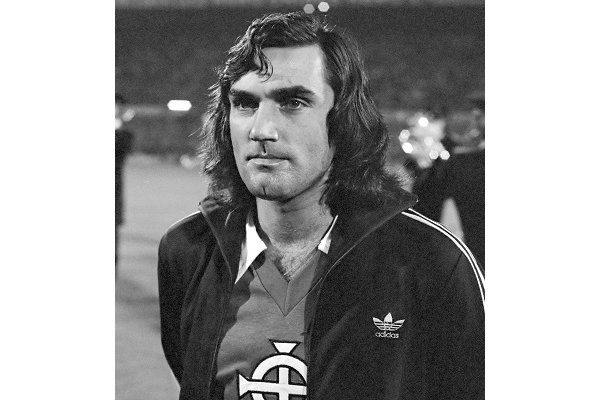George Best
Football history is embellished with tales of remarkable players who left an indelible mark on the sport. George Best, an iconic figure in the beautiful game, possessed extraordinary talent combined with a captivating personality that made him one of the most celebrated and enigmatic players of his era.
Early Life and Rise to Prominence:
Born on May 22, 1946, in Belfast, Northern Ireland, George Best displayed his passion and aptitude for football from an early age. His prodigious talent caught the attention of Manchester United scout Bob Bishop, who brought the young Best to the attention of the club's legendary manager, Sir Matt Busby. At the age of 15, Best made his debut for Manchester United's first team and quickly established himself as a player to watch.
Mesmerizing Skills and Playing Style:
George Best possessed a unique combination of natural flair, exquisite ball control, lightning-quick pace, and remarkable balance. He effortlessly glided past defenders, leaving them bewildered by his unpredictable dribbling and audacious feints. Best's agility and close ball control allowed him to manoeuvre through tight spaces with remarkable ease, making him a formidable force on the pitch. His technical abilities, combined with his sheer joy of playing, made him a true entertainer for the fans.
Success at Manchester United:
Best's career reached its pinnacle during his time at Manchester United, where he played a significant role in the club's success in the 1960s and early 1970s. In 1968, Best played a crucial role in Manchester United's European Cup triumph, scoring a mesmerizing goal in the final against Benfica. He was also a vital component in helping the club secure two English First Division titles in 1965 and 1967.
Off-Field Struggles:
Despite his immense talent on the pitch, George Best faced significant challenges off the field. His celebrity status and the pressures that came with it took a toll on his personal life. Best was known for his love of nightlife, which often led to alcohol abuse and a turbulent lifestyle. These issues affected his performance and led to strained relationships with teammates, managers, and the football establishment.
After Manchester United:
Best's time at Manchester United came to an end in 1974, marking the beginning of a nomadic phase in his career. He played for various clubs around the world, including spells in the United States, Ireland, Scotland, and Australia. However, despite occasional flashes of brilliance, Best was never able to consistently recapture his earlier form. Nevertheless, his influence and charisma continued to captivate fans wherever he went.
Legacy and Impact:
George Best's impact on football extends far beyond his playing career. He remains an enduring cultural icon, representing the epitome of style and charisma both on and off the pitch. Best's flair and individual brilliance influenced generations of players who aspired to emulate his mesmerizing skills. Despite the personal struggles that overshadowed his later years, his name remains synonymous with the artistry of football.
George Best's playing career was a tale of triumphs, trials, and tribulations. His mesmerizing skills and audacious style of play captivated audiences worldwide. Although his career was tarnished by personal struggles, Best's legacy as one of football's all-time greats endures. He serves as a reminder of the immense talent and the challenges that come with the burden of being a sporting superstar. George Best's name will forever be etched in the annals of football history, a symbol of the game's enduring beauty and the complexities of human nature.
George Best - Info

| Name: | George Best |
|---|---|
| Date of Birth: | 22nd May 1946 |
| Nationality: | Northern Ireland |
| Position(s): | Winger |
| Career: | 1963 to 1983 |
| Regular Shirt Number(s): | |
| Nickname(s): |
Other articles featuring George Best
Tweet

